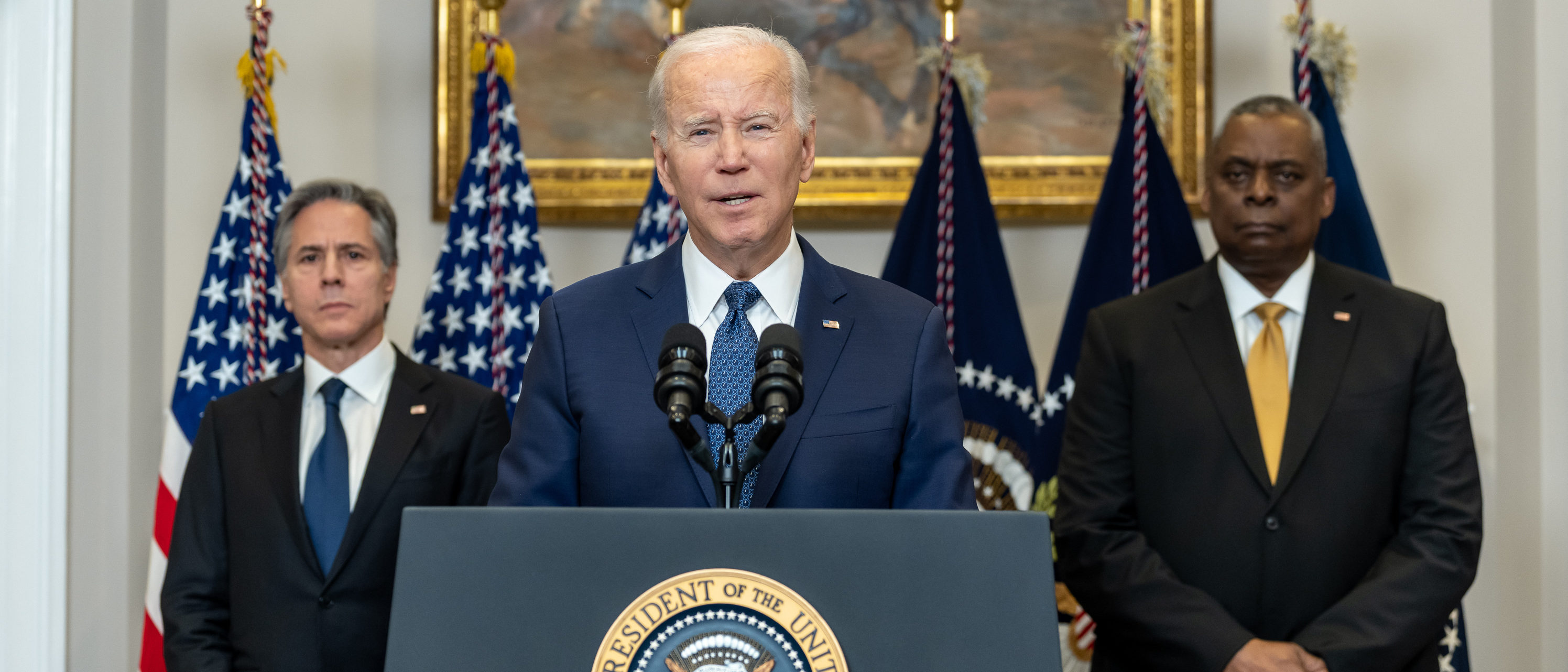National Defense
Biden Pentagon To Give Troops ‘Economic Hardship’ Bonus Of Only $20 Per Month

Flickr/Official White House Photo by Cameron Smith
The Biden administration’s Pentagon will start giving U.S. troops “economic hardship bonuses,” but the payout is unlikely to make any substantial difference in their salaries, according to Military.com.
Troops in the E1 through E3 rank — considered junior enlisted troops — will receive an additional $20 per month as a result of the new bonus, a senior defense official, speaking on condition of anonymity, told Military.com on Friday. Junior enlisted troops have been among those hit the hardest in the military by financial hardships in recent years, with low pay compared to the private sector and high inflation and cost rates.
“The monthly bonus amounts, on average, will total approximately $120 [over the six months] … and they’re based on the funding Congress has made available,” the official told Military.com.
The bonuses were appropriated by Congress last year in a $43 million package included in the 2024 National Defense Authorization Act (NDAA) amid concerns that troop pay wasn’t sustainable, according to Military.com. The Pentagon took the appropriated funds and calculated how many troops it could pay before the funds ran out, which was approximately 266,000 people.
As a result, only E1 through E3 junior troops will receive the bonus, while the E6 rank will not, according to Military.com. Although the funds were authorized in December, they weren’t appropriated for the Pentagon until late March.
“While it’s welcome news that the department will provide some junior enlisted service members with temporary bonus pay, as authorized by [last year’s] NDAA, more must be done,” Justine Tripathi, spokesperson for the House Armed Services Committee (HASC), told the Daily Caller News Foundation. “[This is] why the [2025] NDAA NDAA provides junior enlisted service members with a 19.5% pay raise.”
The House proposed in June to give junior enlisted troops a 15% pay raise, in addition to a proposed 4.5% raise for all troops, equating to 19.5% for junior troops, according to Military.com. The Biden administration “strongly [opposed]” the proposal, saying in a statement that the administration needed to wait for its annual compensation review to be completed until it signed off on any such decisions.
No servicemember should ever struggle to feed their family or afford housing.
The FY25 #NDAA will boost servicemember compensation w/ a 15% pay raise for junior enlisted servicemembers, expand allowances for housing & food, & improve the cost of living calculation. pic.twitter.com/X3Hmw4mH66
— Armed Services GOP (@HASCRepublicans) April 11, 2024
A year-long study conducted by the HASC released in April found that “servicemembers, especially junior enlisted servicemembers and servicemembers supporting large families, struggle to afford housing and feed their families.” Junior enlisted troops’ salaries have largely failed to remain competitive with the civilian job market, the study found.
That sector of troops received smaller pay raises — or no raises at all — in eight of the last 40 years, according to the study. A separate study conducted by the Military Family Advisory Network in June found that over half of military families, active servicemembers and veterans’ financial well-being was poor.
The same study found that only 57% of those respondents would recommend joining the military, compared to 74% in 2019.
The DCNF reached out to the Pentagon for comment.
Featured Image Credit: Flickr/Official White House Photo by Cameron Smith
All content created by the Daily Caller News Foundation, an independent and nonpartisan newswire service, is available without charge to any legitimate news publisher that can provide a large audience. All republished articles must include our logo, our reporter’s byline and their DCNF affiliation. For any questions about our guidelines or partnering with us, please contact [email protected].

